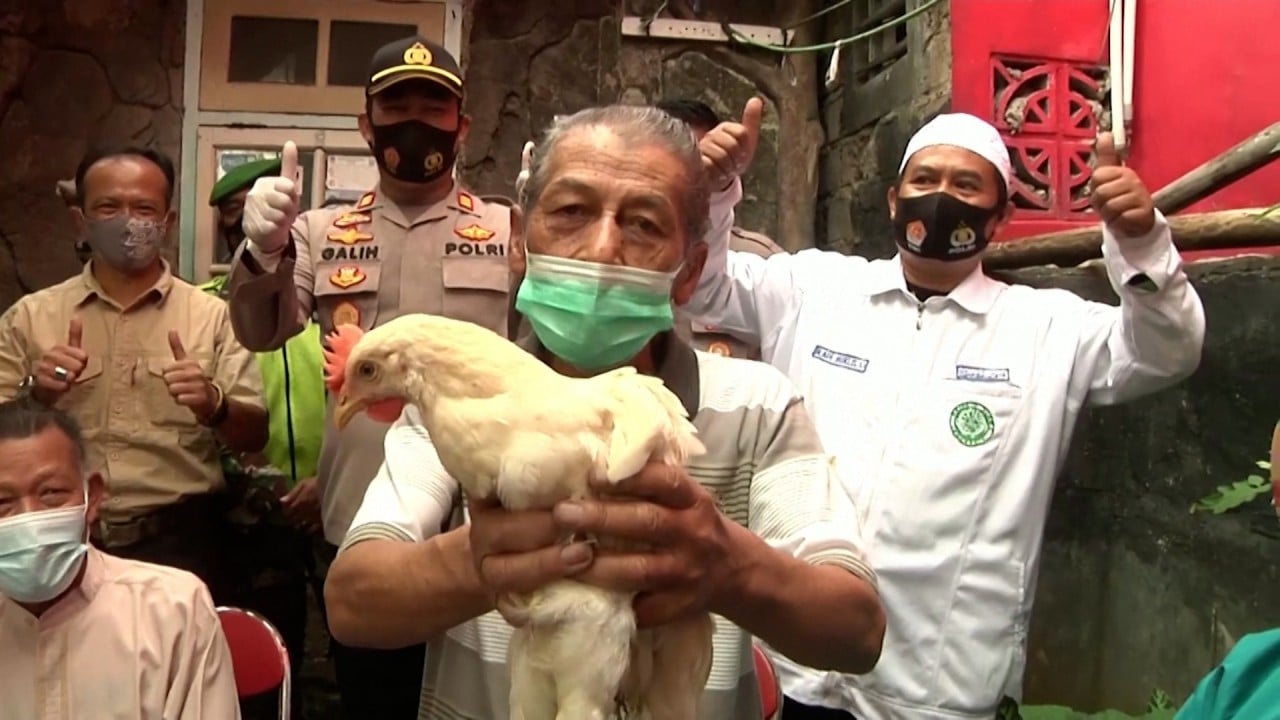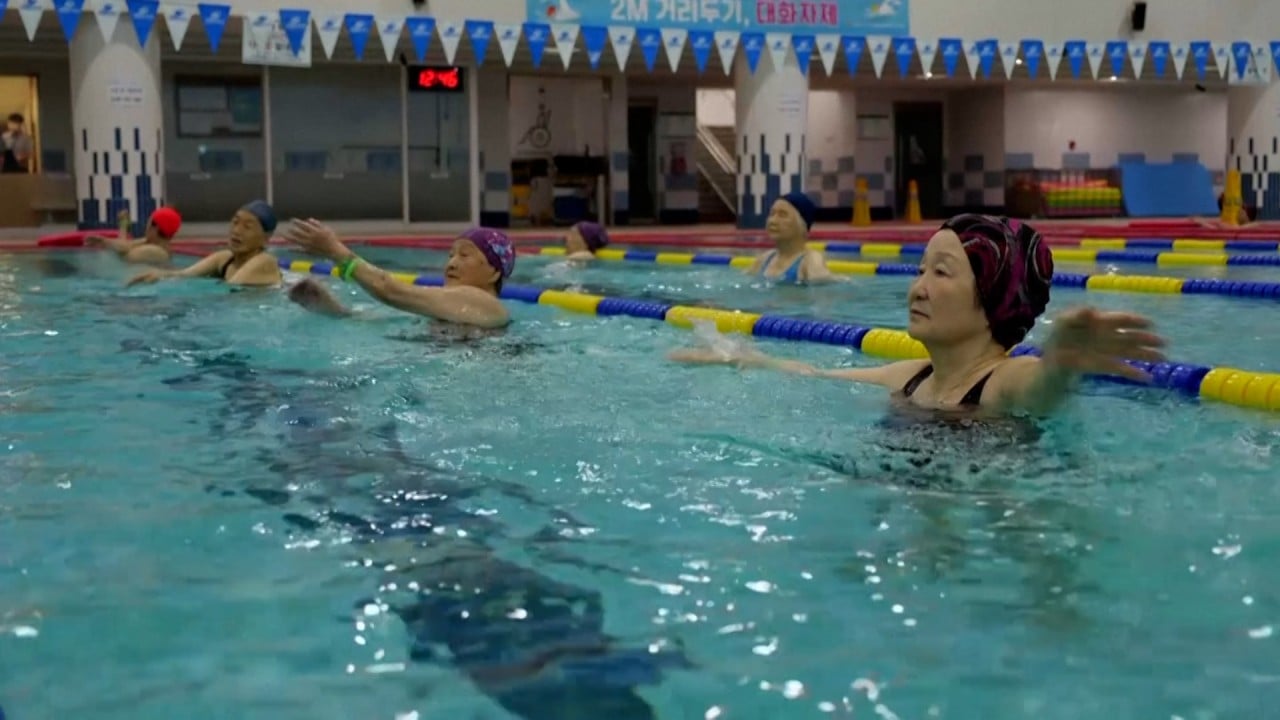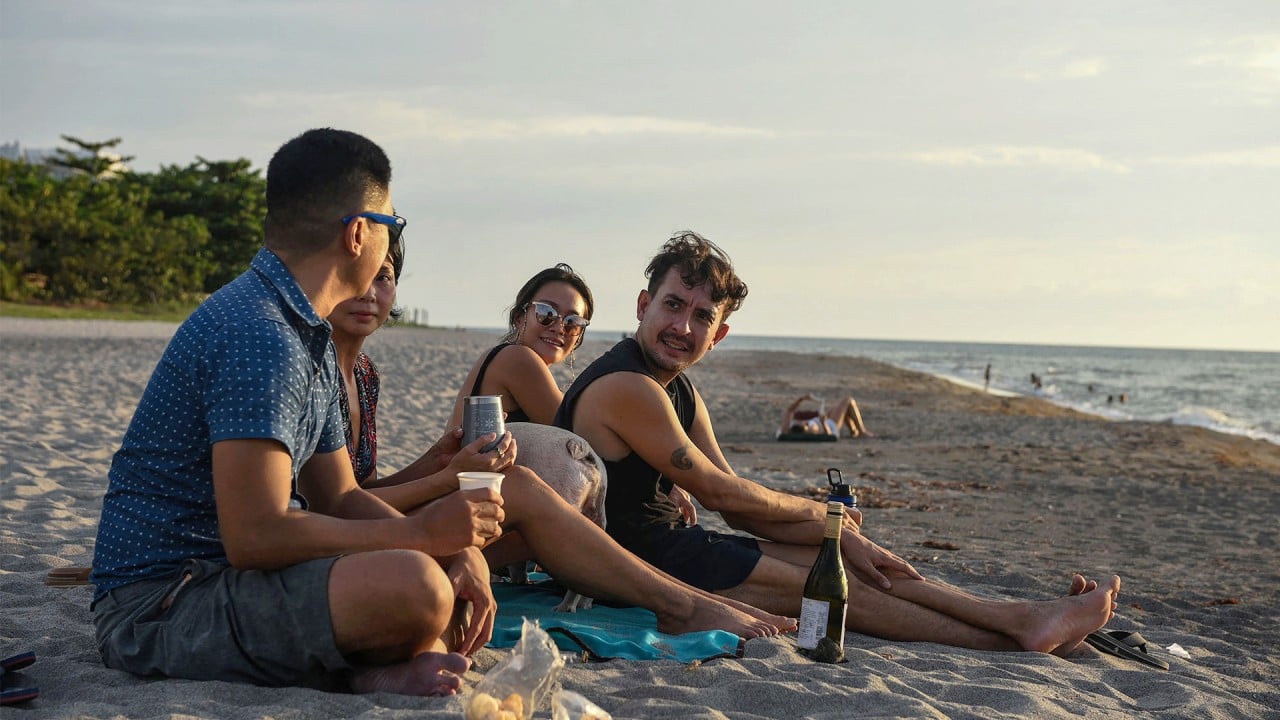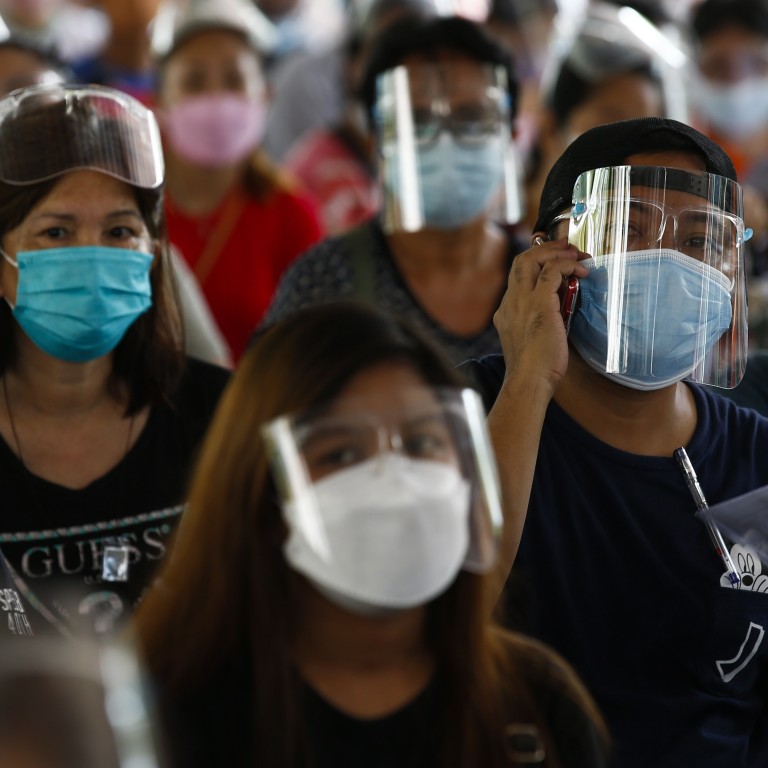
Coronavirus: Philippines signs deal for 40 million Pfizer shots; Singapore sees early rush for Sinovac vaccine
- Deliveries of the Pfizer vaccine will begin ‘after eight weeks starting August’, Filipino vaccine tsar Carlito Galvez said
- Elsewhere, Singapore private clinics are reporting overwhelming demand for the Sinovac shot, while India has recorded the lowest daily number of cases in nearly three months
Deliveries of the vaccine, among several brands of coronavirus shots allowed for emergency use in the Southeast Asian country, will begin “after eight weeks starting August”, Carlito Galvez said in a statement.
The deal comes as a delay in vaccine deliveries had earlier this month forced some cities in the capital region to close vaccination sites, complicating Manila’s efforts to ramp up its immunisation drive in an Asian country with one of the biggest numbers of infections and deaths.
Asia could face ‘double burden’ of dengue and Covid-19
He described the Pfizer-BioNTech agreement as “the biggest and most decisive deal we had for 2021”.
“(It) will significantly boost our national immunisation programme and will enable us to realise our goal of achieving herd immunity by year-end,” Galvez said. “This is another positive development that will give a happy and better Christmas for all Filipinos.”
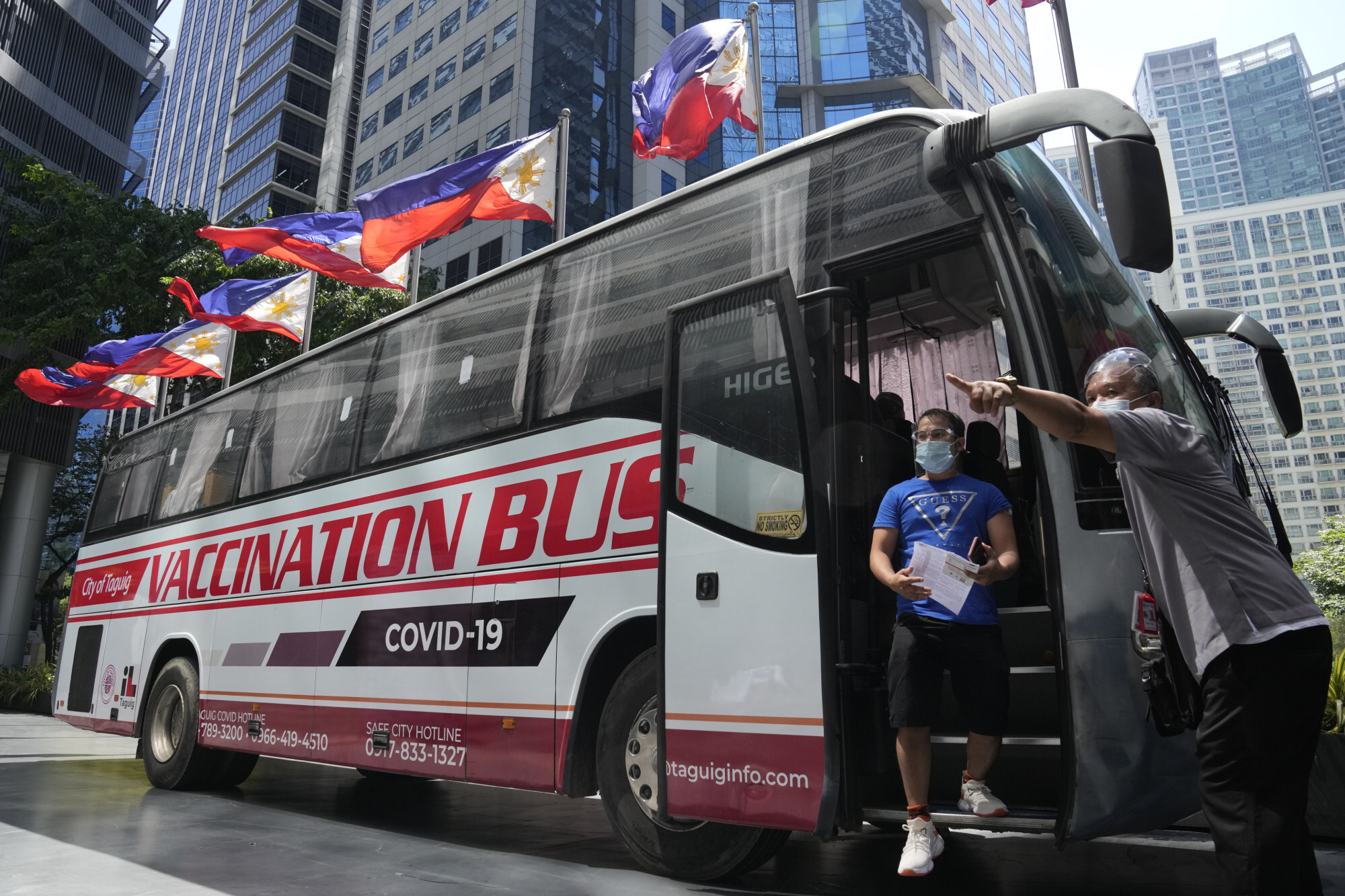
The Philippines has so far inoculated more than 8 million people, but not all have received their second dose. The aim is to inoculate 50 million to 70 million people to achieve herd immunity.
With vaccine demand easing up for many big and rich countries after they acquired more than enough doses for their populations, Galvez said this has allowed Pfizer to commit the delivery.
Singapore sees early rush for Sinovac vaccine
Singapore has vaccinated almost half its 5.7 million population with at least one dose of the vaccines from Pfizer-BioNTech and Moderna. Both have shown efficacy rates of well over 90 per cent against symptomatic disease in clinical trials, compared with Sinovac’s 51 per cent.
A number of the people rushing for the Sinovac shot on the first day of its availability in Singapore were Chinese nationals, who felt it would make it easier to travel home without going through quarantine.
Singapore pips Hong Kong in usable hotel rooms for Covid-19 quarantine
Singapore said it is awaiting critical data from Sinovac before including it in the national vaccination programme.
Meanwhile, authorities have selected 24 private clinics to administer its current stock of 200,000 doses. The clinics are charging between S$10 to S$25 (US$7.50 to $18.50) per dose.
“We have about 2,400 bookings, so that stretches from right now until end of July,” Louis Tan, CEO at StarMed Specialist Centre, said on Saturday.
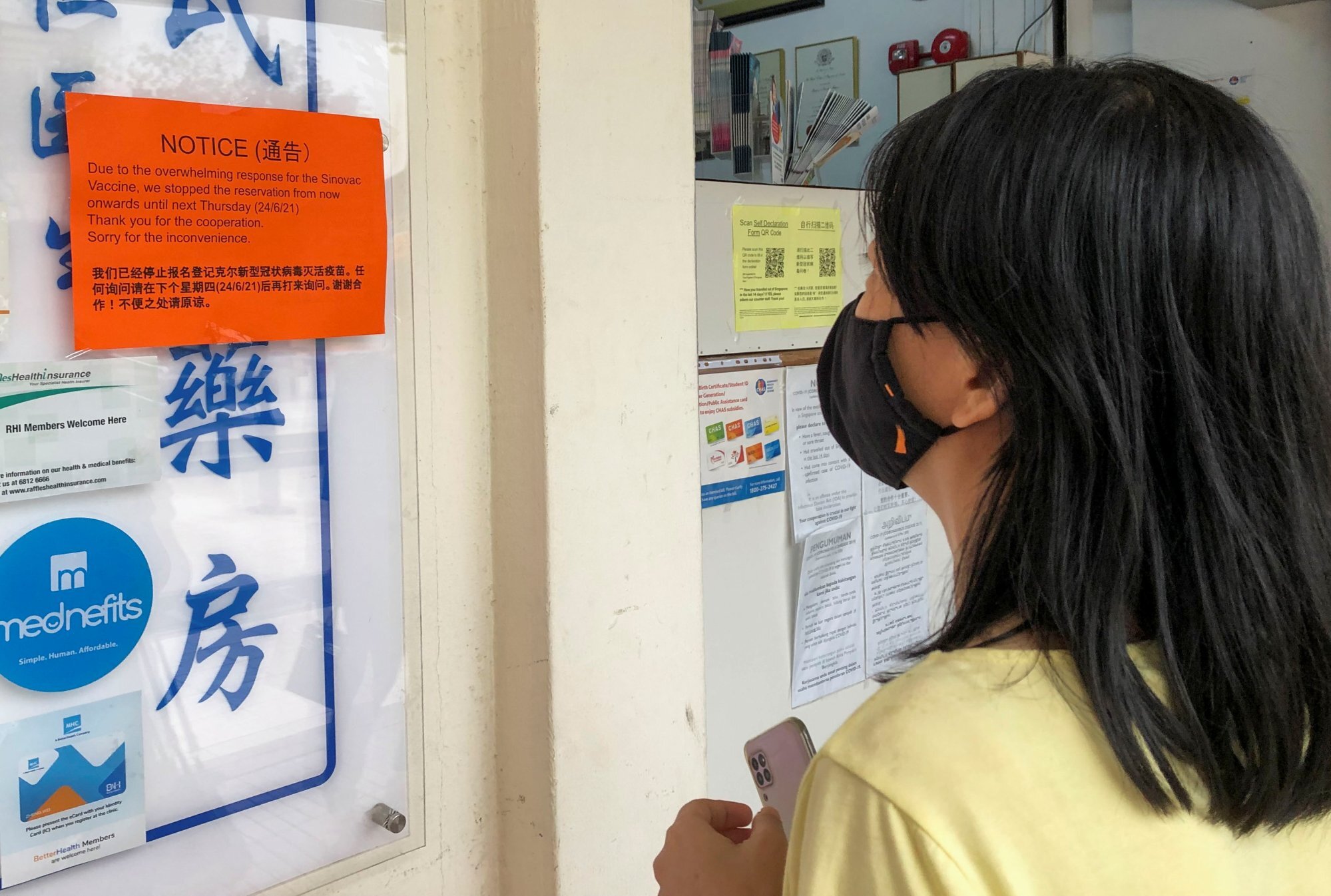
Leong Hoe Nam, an infectious diseases doctor at Rophi Clinic, also said he had been “overwhelmed” by people wanting the Sinovac shot.
Tang Guang Yu, a 49-year-old engineer, was among the Chinese nationals resident in Singapore who waited for the Sinovac shot rather than take a foreign-made vaccine that he thought might not be recognised by authorities back home.
“No one wants to be quarantined for a month, I don’t have so many days of leave,” Tang said as he queued outside a clinic.
Travellers to China may have to be quarantined at a facility and at home for up to a month depending on their destination city, regardless of vaccination status, according to the Chinese government website.
China’s Covid-19 vaccination drive hits 1 billion mark
Other people said they have more confidence in the Sinovac vaccine since it is based on conventional technology, while those developed by Pfizer-BioNTech and Moderna use a newly developed messenger RNA platform.
“The mRNA technology has been around for 30 years, but it has never been injected into human until recently due to Covid-19 emergency, how safe it is?” asked Singaporean Chua Kwang Hwee, 62, as he lined up outside a clinic to inquire about getting the Sinovac shot.
Sinovac vaccine uses an inactivated or killed virus that cannot replicate in human cells to trigger an immune response.
India markets buzz again as infections decline
India on Sunday reported 58,419 new coronavirus infections over the past 24 hours, the lowest daily number in nearly three months, data from the health ministry showed.
The total number of coronavirus cases have risen to 29.9 million and so far 386,713 people have died. Deaths rose by 1,576 overnight.
As lockdowns ease, shopping centres and markets in the India are buzzing again, leaving doctors worried that India faces a repeat of the devastating third wave of infections that led to a near-collapse of the health system.
Plug in and go: US$140,000 mobile hospitals helping India fight Covid-19
Delhi, a megacity of 20 million people, saw horrendous scenes in April and May when Covid-19 cases went through the roof, as they did across the country.
Crematoriums ran out of space and gasping patients died outside hospitals, unable to get beds, oxygen and drugs.
Sandeep Budhiraja, medical director at Max Healthcare in the capital, said he was surprised at people’s short memories. “People are just behaving as if nothing happened just about two, three weeks back,” he said.
But while a rise in cases would be likely, Budhiraja said a new “explosion” would probably only occur if a new variant took hold.
Japanese fear Covid-19 rebound from Olympics
The two-day nationwide survey conducted from Saturday found that 40.3 per cent believe the Summer Games should be held without spectators and 30.8 per cent think they should be cancelled.
The results demonstrate the scale of the public’s doubts about holding a major global event during a pandemic, with 68 per cent also viewing the Japanese government’s vaccine roll-out as slow.
As young people tune out, can Olympics vault over the generation gap?
The telephone survey found that 50.8 per cent believe the government’s decision last week to end a state of emergency in Tokyo, Hokkaido, Osaka and six other prefectures on Sunday was too early.
The poll, however, found that the approval rating for Prime Minister Yoshihide Suga’s Cabinet stood at 44.0 per cent, up from 41.1 per cent in mid-May. The disapproval rating declined to 42.2 per cent from 47.3 per cent, which was the highest since the cabinet was formed in September.
Vietnam receives Sinopharm doses
Vietnam has received a shipment of 500,000 Sinopharm vaccine doses donated by China, the health ministry said on Sunday, as the country is ramping up inoculations to battle against a more widespread outbreak.
The Southeast Asian nation approved China’s Sinopharm vaccine for emergency use against Covid-19 in early June. The vaccines will be used for three groups: Chinese citizens in Vietnam, Vietnamese who have plan to work or study in China and people who live near the borders with China, the health ministry said in a statement.
Vietnam’s domestic inoculation programme, which started in March, has so far relied heavily on around 4 million shots of AstraZeneca’s vaccine. Nearly 2.4 million people in Vietnam have had one dose of a Covid-19 vaccine, while 115,315 have been fully vaccinated, according to official data.
The country of 98 million also received a batch of nearly 1 million AstraZenca doses of vaccine donated by the Japanese government on June 16.
Vietnam is tackling a more stubborn wave of infections. The country’s business hub, Ho Chi Minh City on Sunday banned public gatherings of more than three people and imposed lockdown orders on some virus-prone areas. Vietnam’s latest outbreak, which includes the highly transmissible delta coronavirus variant, has accounted for about 75 per cent of its overall cases during the pandemic, with 9,849 infections and 31 fatalities since late April.
South Korea to ease restrictions
South Korea says it plans to allow social gatherings of up to six people and allow restaurants and cafes to operate until midnight in the densely populated Seoul area, starting from July 1.
Health Minister Kwon Deok-cheol said on Sunday the eased distancing rules are aimed at “finding a balance between quarantine and (effort to) return to normal amid the prolonged Covid-19 pandemic.”
After a two-week transition period, health authorities plan to allow gatherings of eight people in the Seoul area from July 15. Currently, authorities allow gatherings of up to four people and permit restaurants, cafes and other businesses to operate until 10pm. Restrictions on the number of people at private gatherings in the non-Seoul area will be lifted.
Kwon said about 30 per cent of South Korea’s 52 million people have received their first dose of coronavirus vaccines. The country reported an average of 444 new virus cases each day last week, a 15 per cent decrease from the previous week.
Reporting by Reuters, AFP, Kyodo, AP

